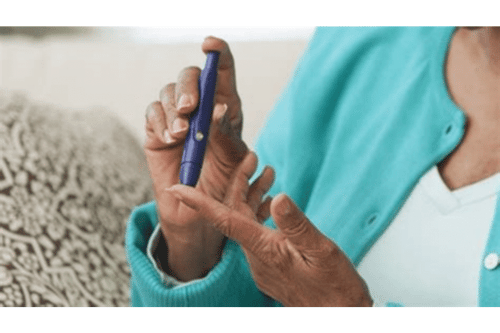Addressing inequalities in access to diabetes services in Haringey

23 Nov 2023
Improving clinical outcomes for diabetes patients from Turkish, African and Caribbean backgrounds in Northumberland Park
Full story
Type 2 diabetes patients in Haringey from Turkish, African and Caribbean backgrounds have benefitted from work to reduce inequalities in access to services, with 57% of people contacted now engaging with the team.
Diabetic specialist nurse Noma Mafu led the team that worked with GPs from three local practices using funding available for the Northumberland Park ward, the most deprived area in Haringey. Local GPs helped them to identify a number of patients with diabetes who were not engaging with them to manage their diabetes.
They rang those from an African and Caribbean background themselves, and an interpreter rang those of Turkish heritage, to set up focus groups to understand why. They found that language was a barrier to the Turkish people, so an interpreter was used for their groups.
Both groups said the dietary advice, which typically talked about potatoes and pasta, did not represent the food they ate. The materials and course content were updated and the sessions presented by a dietitian, a diabetes nurse and a peer support worker. 97% gave positive feedback and 81% improved their diabetes management.
Alongside this, the team ensured that patients who couldn’t leave their home had the blood tests they required, updating GPs with results and making any adjustments to their treatment they needed.
One patient benefitted from reduced rate gym membership and a sewing class, seeing improvements after contact with services (including a dietitian). Another saw improvements as a result of an increase in their medication dosage, when the reason for this was explained to them. A third patient attended the intermediate diabetes service after a home visit, having repeatedly failed to attend appointments set up for them by the GP practice. One began attending after the peer support worker helped them to get their fence fixed by the Council, another (with poor outcomes) attended and improved after a Whittington Health nurse helped them see their lack of knowledge was holding them back.
The change that perhaps best encapsulates the work on inequalities, though, is the improvement in the management of their condition by one participant in the diabetes self-management programme, run in Turkish, as a result of outreach by the Turkish-speaking peer support worker.
“We are now looking to roll this out wider when funds are available, with increased dietitian and consultant support”, said Noma. “It’s been fantastic to see the improvement in outcomes through this work, we want to help patients from all backgrounds to access these services that can transform their health and wellbeing.”

